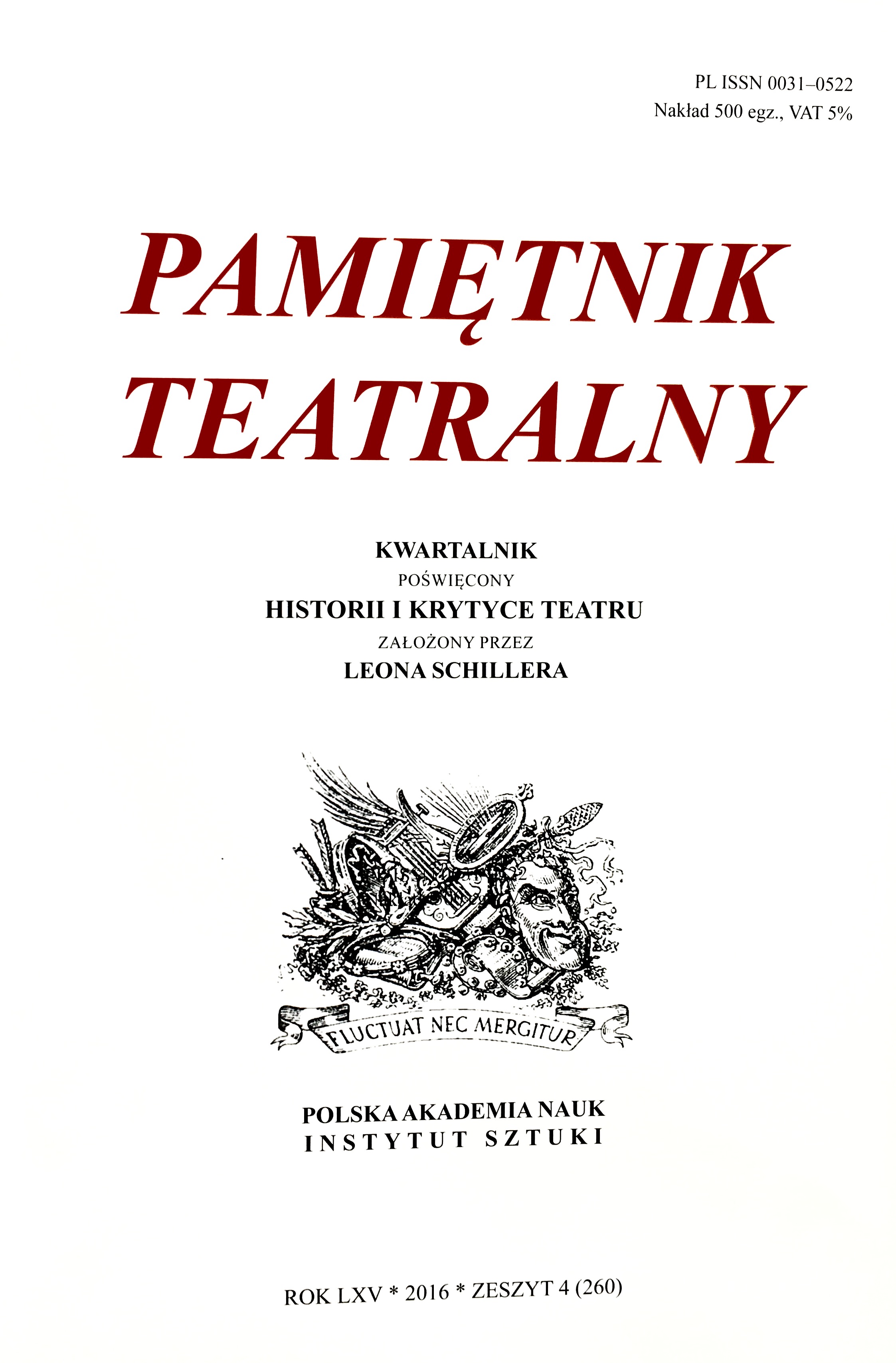Nadobny komisarz Mandelbaum
The Dainty Commissioner Mandelbaum
Author(s): Przemysław PawlakSubject(s): Theatre, Dance, Performing Arts
Published by: Instytut Sztuki Polskiej Akademii Nauk
Keywords: Witkacy;communism;
Summary/Abstract: Why is it that The Shoemakers is considered to be a drama about revolution, even though, if we take into account all the surviving plays by Witkacy, it is Dainty Shapes and Hairy Apes that is most imbued with allusions to the Petrograd revolt that occurred a hundred years ago? The story unfolding on stage seems at times to be a parody of the attack on the Winter Palace. The brave and uncompromising girl-soldier Sophia kills Tarquinius and Pandeus, makes Sir Grant commit suicide, and pushes and taunts the group of Forty Mandelbaums beyond endurance to finally fall victim to their rage. In 1917, a certain Bernard Mandelbaum (1888–1953), son of a Lublin merchant, a Polish philologist sympathising with Communism, a journalist of Promień, and the ideological and literary manager of the People’s Theatre in Petrograd became one of two Bolshevik commissars of state museums and art collections in Petrograd and was additionally tasked with investigating the fate of the Women’s Battalion that defended the Winter Palace. In recognition of his questionable contribution to the revolutionary cause, Stalin appointed Mandelbaum to the post of Education Commissioner of the Committee for the Kingdom of Poland. Being on vacation following his injury during the battle on the Stokhod River, Witkacy might have got to know Mandelbaum though mutual acquaintances or might have seen him speak out at political rallies. Mandelbaum came back to the re-emerging Poland to campaign against the Soviet–Polish War, for which he got arrested. After his release, Mandelbaum landed a school teaching position. In the interwar period, having assumed the name “Stefan Drzewiecki,” and later “Drzewieski”, he rose to prominence as Vice-President of the Polish Teachers’ Association and a member of the State Council for Public Enlightenment. Despite being attacked, he supported the Jędrzejewicz reform of education of the Sanation government. After the outbreak of the Second World War, Mandelbaum worked in General Sikorski’s government administration in London, and in 1945 he joined the diplomatic service of the People’s Republic of Poland. After a few years, he decided to stay in the West and managed to become Chief of the Reconstruction Department of UNESCO. In that capacity, he greatly contributed to the foundation of the International Federation of Children’s Communities (FICE) whose first task was to establish a committee supporting directors of children’s communities for war orphans.
Journal: Pamiętnik Teatralny
- Issue Year: 260/2016
- Issue No: 4
- Page Range: 91-112
- Page Count: 22
- Language: Polish

